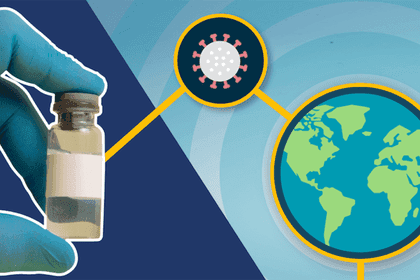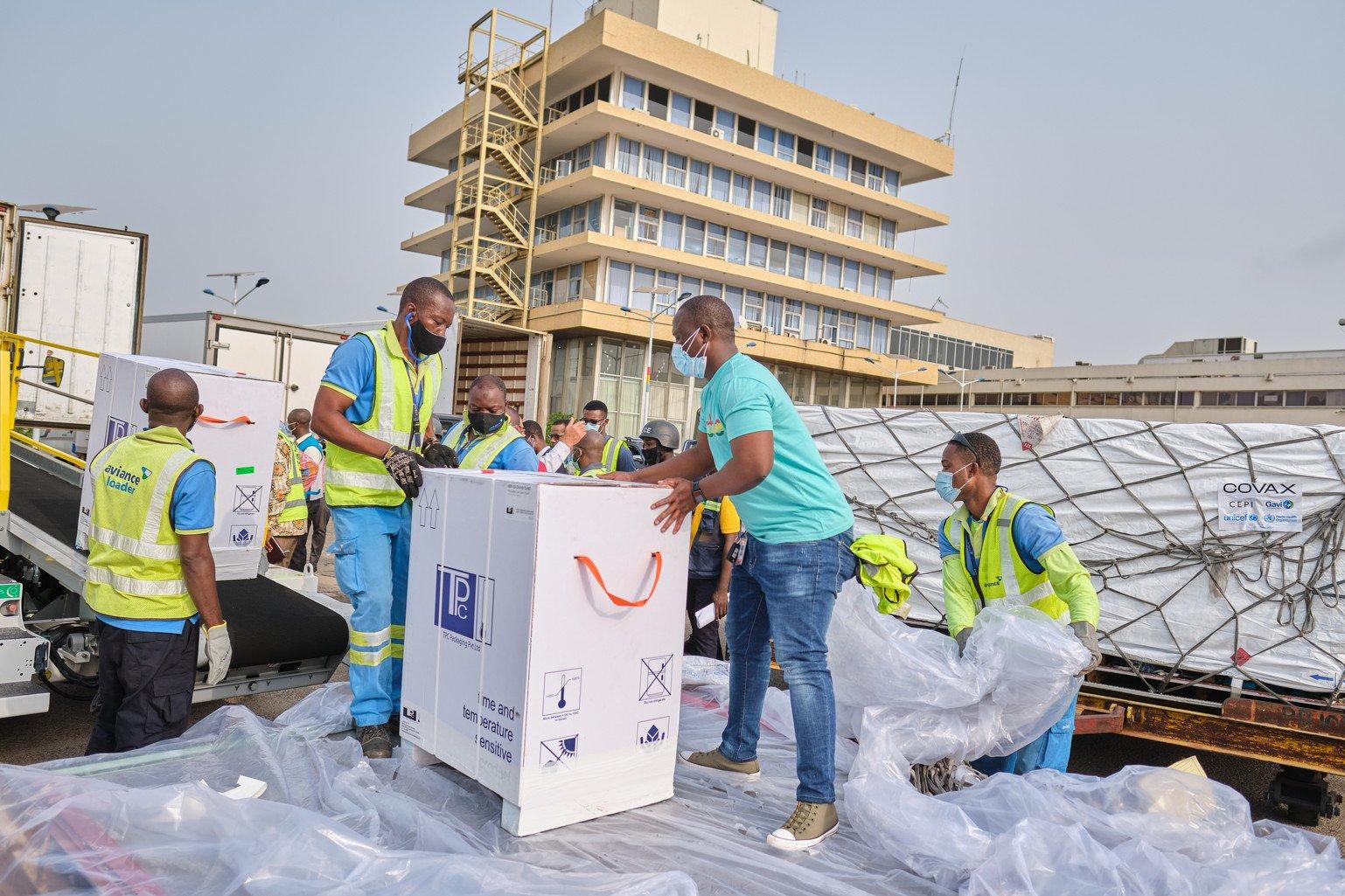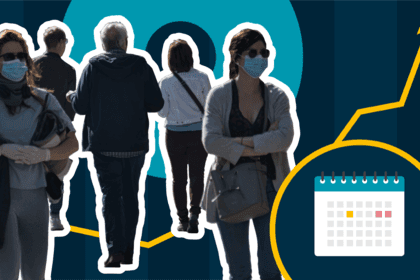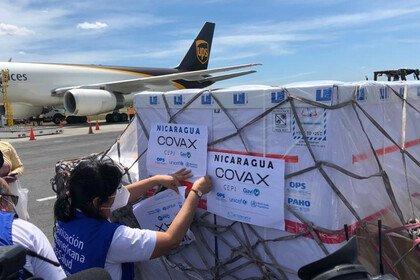
COVAX campaign for equitable vaccine access delivers first doses to West Africa
The largest mass vaccination campaign in history has begun. Ghana and Cote D’Ivoire have become the first countries to receive Covid-19 vaccines through COVAX. Richard Hatchett, CEO at the Coalition for Epidemic Preparedness Innovations (CEPI), the vaccine research and development partnership co-leading COVAX, reacts to this historic moment.

Zipline’s drone logistics network will provide on-demand, last-mile delivery of Covid-19 vaccines doses, supporting equitable access even in remote and hard-to-reach areas. Zipline’s drone delivery service in Ghana was established in 2019 with support from Gavi, the Bill & Melinda Gates Foundation, the UPS Foundation and other partners.
Zipline/2021
The first Covid-19 vaccine doses to be made available through the COVAX facility arrived in Accra, Ghana on 24 February 2021, marking a pivotal point in COVAX's work to close the vaccine equity gap and save lives all around the world.
The shipment of 600,000 Oxford-AstraZeneca vaccines, manufactured by the Serum Institute of India, made their way from India to Ghana, just one week after the World Health Organization’s Emergency Use Listing allowing for these rapid deliveries. A further 504,000 doses arrived in Cote D’Ivoire on 26 February, with vaccinations due to be given to healthcare and frontline workers in the coming days. Many more deliveries will follow over the course of 2021.
These first supplies mark a turning of the tide
With recent estimates suggesting 75% of all Covid-19 vaccinations worldwide have so far occurred in ten higher-income countries, these first supplies mark a turning of the tide – the start of our aim to enable priority populations in all countries to be protected from this devastating pandemic.
Launched last April, the Covid-19 Vaccine Global Access (or COVAX) initiative was set up by CEPI, Gavi, the Vaccine Alliance, the World Health Organization (WHO), and key partners including UNICEF, as part of the Access to Covid-19 Tools (ACT) Accelerator. Its goal is to develop, manufacture and fairly allocate 2 billion vaccines to vulnerable populations by the end of the year and end the acute phase of the pandemic.
Within COVAX, CEPI is focused on the vaccine portfolio, investing in research and development across a variety of promising candidates, with the goal to support development of three safe and effective vaccines which can be made available to countries participating in COVAX. These deliveries to West Africa have been enabled through CEPI’s long-term partnership with the University of Oxford, supporting the development of vaccines against Covid-19 as well as Middle East Respiratory Syndrome (MERS), caused by another coronavirus.
To support our work, we have made strategic investments in vaccine manufacturing, including reserving capacity to manufacture COVAX vaccines at a network of facilities and securing glass vials to store and deliver billions of vaccine doses. We are also now funding the ‘next generation’ of vaccine candidates, to give the world additional options to control Covid-19 in the future.
A worldwide vaccine rollout
According to our latest supply estimates, almost 2.3 billion doses of Covid-19 vaccines could now be rolled out worldwide through COVAX this year, with an expected 1.8 billion doses to go to 92 lower-income countries. If the current forecast comes to pass, we have the potential to exceed our initial target and deliver vaccines to at least 27% of these populations in 2021.
While we have developed multiple Covid-19 vaccines in record time, this effort will be the largest mass vaccination campaign in history, and it is important to recognise that there could be technical and logistical challenges along the way. We are also now living through a new and much more complicated stage of the pandemic with the emergence of new variants that may threaten to evade the existing vaccines.
This week provides hope, but it is paramount that we continue to build on this momentum. We should not only push forward with our plan to end the acute phase of this devastating crisis, but also continue to invest in research and development so that we can build on our scientific achievements and meet the continued challenge of this pandemic.
Wellcome is one of CEPI’s founders, co-launching the coalition at Davos in 2017, and has provided financial contributions to support CEPI’s mission to advance vaccines against emerging infectious diseases.
Further details are provided in a joint COVAX press release with Gavi, WHO, UNICEF and partners.


